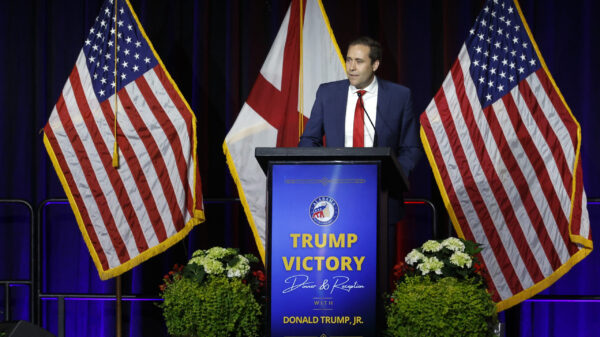By Brandon Moseley
Alabama Political Reporter
U.S. Congressman Mo Brooks (R) from Huntsville praised the work of America’s research universities said that, “Research Universities play a vital role.” Rep. Brooks’ comments were made in a Subcommittee on Research and Science Education hearing held to examine both the opportunities and challenges facing the nation’s research universities. Representative Brooks is the Chairman of the Research and Science Education Subcommittee of the House Science, Space and Technology Committee.
Representative Brooks said, “Innovation has remained a part of the fabric of this Nation since its founding. Particularly in today’s tough economic times, research universities play a vital role in America’s ability to maintain its competitiveness in an increasingly technologically developed world, and the knowledge and skills produced by our nation’s research graduates provide the fuel for these endeavors.”
Chairman Brooks said, “According to the recently released National Academies report, requested in 2009 by now Full Committee Chairman Ralph Hall and other Members of Congress to identify the top ten actions to be taken in order to maintain the excellence of U.S. research and doctoral education, America’s research universities have emerged as a major national asset, which supports the Nation’s economic goals among other things. The challenges faced by these institutions, which are discussed in the report, range from unstable revenue streams and antiquated policies and practices to increasing competition from universities abroad.”
Representatives from the nation’s research universities were in Washington, D.C. to celebrate the 150th anniversary of the Morrill Act and to attend the hearing. According to Rep. Brook’s written statement. “The hearing provided an opportunity for a broader discussion about how these universities affect national prosperity. Signed into law by President Lincoln, the Morrill Act partnered the federal government and states to build land-grant institutions in an effort to create a modern agricultural and industrial economy for the 20th century. This partnership continues today, supporting the nation’s educational, research, and economic endeavors.”
Dr. John Mason, Associate Provost and Vice President for Research at Auburn University said, “Relevant fundamental research is that which industry can apply to innovate, create or improve products and services, and, ultimately, create jobs.” Dr. Mason said that Auburn University attempts to partner with federal agencies and American business and industry “to accomplish objectives of national need.” Dr. Mason said that one of the challenges that Auburn is facing is the “regulatory burdens placed on all recipients because of what appears to be the improper actions of a few.”
Other witnesses at the subcommittee hearing included Mr. Charles O. Holliday, Jr., Chair of the Committee on Research Universities, National Academies; Dr. Jeffrey R. Seemann, Vice President for Research, Texas A&M University and Chief Research Officer at The Texas A&M University System; Dr. Leslie P. Tolbert, the Senior Vice President for Research at The University of Arizona; and Dr. James N. Siedow, the Vice Provost for Research at Duke University.
Congressman Mo Brooks represents Alabama’s Fifth Congressional District.




















































